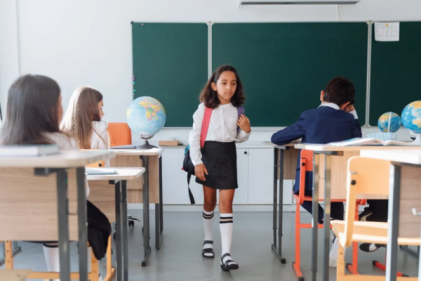Take the time to listen
Children who are upset or in emotional distress just want someone who will listen. Unfortunately our teens are more likely to push us away than confide in us, so it’s important that parents make it easy to talk. One on one time, long walks, car journeys or time spent together when they get home from school can be useful tools to encourage them to open up.
Ask questions
It is tempting to offer your child advice based on your years of wisdom and solving all their problems would be so easy but your teenager won’t thank you for this approach. Instead, parents should realise that your teen has the ability to solve these problems on their own.
Help them realise this by asking them questions such as:
- How has this affected you?
- How has it affected the other person?
- How do you feel about the friendship?
- Does this fit in with how you think friendships are all about? Should all friendships last forever?
- What do you see as your alternatives?
Once your child has answered these questions you can offer advice on how you think the issue can be sorted.
Be a model
The best way for your teen to learn how friendships should function is from experience. Show your children how good friendships function by having good friends around you are reliable, trustworthy, loyal, fun and who share your values and goals.
Invite your child's friends over
To help develop friendships, get your teenagers to spend time with their friends at your home. You will be reassured that they're safe. You can help your child build relationships and you can supervise and observe (from a distance), and then ask questions about the relationships you see.
Get out more
Encourage your teenager to take part in extra-curricular activities like sports, music, a part-time job, a local club or society as these are all great ways to develop friendships with like-minded people.
Monitor technology
Mobile phones, Facebook, instant messaging, and technology can be good and bad for teenage friendships. Monitoring (in an non-intrusive way) what your child is sending and receiving can help your child make good decisions and if managed the right way it will give you lots to talk about!
What NOT to do
It’s not a good idea to do any of the following:
Banning friends. It’s never a good idea to ban friends. Experts advise that children will actually spend more time with the friends their parents have banned.
Talking at them, judging them, or criticising them. Your teenager needs your support, guidance and a model of what good relationships look like, they don’t need to be criticised or spoken to in a condescending manner.
Confronting hurtful friends. If your child is hurt by a so-called friend or a bully, getting involved is never advised. It’s far more beneficial to speak to your child and help her make good decisions about a certain friend.
Your teenage child will need positive friendships to ensure healthy development. As parents, it’s important to offer support and guidance while also encouraging independence in our teenagers.



